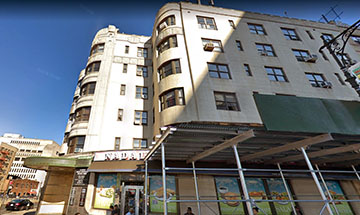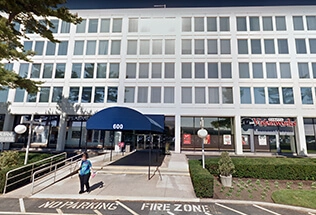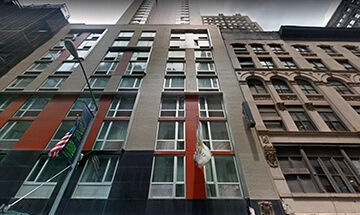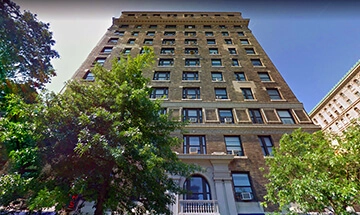In both civil and criminal law cases, preliminary hearings play a pivotal role in preparing the respective parties for trial. In this way, a preliminary hearing gives the judge an opportunity to assess the case’s merits, identify key issues, and create an efficient pathway for the case to move forward.
That said, before your case moves forward, it helps to know what a preliminary hearing entails in civil cases, as well as its significance, the types of questions a judge might ask, and how you can best prepare yourself to maximize your chances of success.
Here, the seasoned New York personal injury attorneys at Schwartzapfel Lawyersare ready to help you successfully prepare for your preliminary healing. Call us now at 516-342-2200 or schedule with us onlinefor a free consultation on your case.
Or, if you would rather first read up on the topic, please continue reading. No matter your situation, it will be our honor and privilege to help you as best we can, however we can.
What Is A Preliminary Hearing?
To begin, it’s important to note that there are preliminary hearings for both civil and criminal cases. Moreover, the procedure is quite different when a person is charged with a crime.
A preliminary hearing in civil cases serves as an initial court proceeding where the judge reviews the basic details of the case. The main purpose of a preliminary hearing is to determine the case’s readiness for trial and to work out procedural matters.
Unlike trials, which involve presenting evidence and making final decisions, preliminary hearings focus on setting the stage for the trial process. Your preliminary hearing is intended to make things easier as the case moves forward.
What Questions Does A Judge Ask During A Preliminary Hearing?
Your preliminary hearing is your skilled legal team’s opportunity to introduce the judge to your case. The judge won’t know very much about your case other than very basic details. The judge also won’t know if your seasoned legal team and the opposing legal team have already had discussions or reached agreements outside of the courtroom.
An Overview Of The Case
The judge meets everyone involved in both parties, reads documents that give a brief outline of your case, and reviews motions or requests both parties have filed with the court. This information can give the judge a good idea of where everyone currently stands.
Information About Court Procedures
A preliminary hearing is a judge’s opening for the formal exchange of information between legal teams. It discusses matters such as discovery deadlines, pre-trial motions, and the scope of evidence that may be presented at trial.
Understanding Settlement Options
The judge may discuss the potential for settlement between the parties through negotiation or mediation. The goal is typically to avoid going to trial, especially for civil matters. The judge reviewing your case may encourage you to settle your dispute outside of court if it seems possible to do so.
If there are any unique circumstances regarding your case, your skilled legal team should raise them during the preliminary hearing. The award-winning New York construction accident attorneys at Schwartzapfel Lawyerscan set the stage for an efficient trial. Call 516-342-2200 now for a free consultation on your case.
Why Is A Preliminary Hearing Important?
A preliminary hearing is important because it simplifies the future of your case. In some cases, a preliminary hearing may even result in an opportunity to settle your case outside of a courtroom.
Easier Case Management
A preliminary hearing allows the judge to manage and streamline the case by addressing procedural issues early on, which can help prevent delays and ensure efficient use of court resources.
If you go to trial, you’ll likely already have a plan in place. You should be able to get right to work rather than making important decisions or asking questions as you go.
Clarifying Legal Issues
A hearing provides an opportunity to clarify legal arguments, review evidence, and identify any potential challenges that may arise during trial. This is the part of the preliminary hearing where a judge decides if a case can actually stand. If the grounds for bringing a case to court are poor or if they don’t meet the standards defined by the law, the judge can make a determination that a case doesn’t actually exist.
Encouraging Settlement Outside Of Court
After reviewing the details of the case, a judge can determine whether taking the matter to trial is necessary. Judges may encourage parties to settle their disputes through mediation or negotiation, potentially avoiding the need for a lengthy trial. This saves resources for both legal teams and the court.
If a matter is complicated or both sides have already tried and failed to settle outside of court, the case can move forward.
Setting Trial Dates
Preliminary hearings often establish dates for future proceedings, including deadlines for filing motions, completing discovery, and ultimately scheduling the trial itself. Both legal teams should work with the judge to coordinate their calendars, but the court’s schedule is more important.
The court cannot move existing dates to accommodate everyone’s schedules. This sometimes requires creative scheduling and maneuvering on the part of both legal teams. It may be a while before your first court appearance, or it may happen sooner than expected, depending on the court’s calendar.
To learn more now, call Schwartzapfel Lawyers at 516-342-2200 or visit us online to schedule your free consultation and/or case evaluation. Alternatively, please continue reading.
What Questions Does A Judge Ask During A Preliminary Hearing?
A judge typically asks the same basic questions at every preliminary hearing. These questions are designed to gather as much basic information as possible before the case moves forward. You aren’t responsible for answering these questions; they’re aimed at your seasoned legal team. You don’t need to prepare answers ahead of time.
To illustrate, common questions judges ask during preliminary hearings include but are not limited to:
- “Can you summarize the nature of the claim for the court?”
- “Who are the parties involved in this case?”
- “What are the specific legal claims or defenses being asserted by each party?”
- “Have all necessary documents and evidence been submitted to support your claims?”
- “Are there any pending motions or requests that need to be addressed before trial?”
- “Has discovery been completed, and are there any outstanding issues regarding evidence?”
- “Have the parties engaged in settlement negotiations or mediation?”
- “Is there a potential for resolving this matter without proceeding to trial?”
- “Are both parties prepared to proceed to trial on the scheduled dates?”
- “Do you foresee any challenges or issues that may arise during the trial process?”
Note: A judge may ask more detailed or specific questions relating to unique issues in your case. That said, this will depend on the nature of your lawsuit as well as any other issues that may impact its ability to move forward.
How Can You Prepare For A Preliminary Hearing?
You don’t need to do much to prepare for a preliminary hearing. All you need to do is provide your skilled legal team with the information they need. We’re ready to handle preliminary hearing preparation on your behalf.
It may not be necessary for you to appear at your preliminary hearing. If you’re ill or injured, we would rather you stay home and rest. If you were involved in a car crash or a building collapse, you don’t need the stress of appearing in court for a routine hearing. You can trust us to provide you with strong representation in your absence.
The seasoned New York personal injury attorneys at Schwartzapfel Lawyers will work hard to build a strong case on your behalf and represent you at your preliminary hearing. Call us at 516-342-2200 now for a free consultation on your case. Day or night, it will be our honor and privilege to fight for you!
Help Your Qualified Legal Team Prepare Evidence
For the best possible representation, your seasoned legal team may need you to provide all the evidence you have. This may include sending your skilled attorney copies of your medical records, pay stubs, or any outstanding bills (e.g., medical, automotive repair, property damage repair, etc.) you’ve received as a result, direct or otherwise, of the controversy (or, “issue”) in question.
Your skilled legal team will likely have many questions for you, and your answers can help them to prepare your case. It’s important to make yourself available to your seasoned legal team whenever they need to speak to you or to immediately contact your qualified legal team when you find or remember something that may be important for your case.
Provide Your Skilled Lawyer With A List Of People To Contact
Your seasoned legal team can contact witnesses who can help with your case. Your skilled lawyer should speak to everyone who has information and work to gather evidence for discovery. You can’t speak to other people and relay information to your seasoned lawyer on their behalf.
Your qualified legal team might want to take pictures of the place where you were injured or where the event took place. The sooner they’re able to photograph the scene, the stronger your case is. Photo evidence is strongest when photos are taken immediately after an injury or accident happens.
Prepare Questions For Your Seasoned Legal Team
Your skilled legal team’s job is to prepare you for your upcoming trial or mediation session. We’re here to explain the process to you and tell you how you can be most helpful in achieving a successful settlement. If you have any questions about court procedures and what to expect, the best time to review the process is around the time of your preliminary hearing.
What Happens After A Preliminary Hearing?
A preliminary hearing is used to establish the next steps of your case. The judge may have recommendations about what you should do next, and both skilled legal teams should take those recommendations into consideration.
Typically, cases go one of two ways: you either settle the case outside of court (for instance, in mediation), or your case goes to trial.
Your Case Goes To Mediation
It’s almost always preferable to settle a case outside of court. Reaching a conclusion can take a long time when a case is handled in court. Since the judge has the final say on the outcome, there’s also no guarantee that either party will be happy with the way the case concludes.
Mediation allows both sides to resolve major issues and reach a mutually satisfying conclusion without any direct interference from the court. Both sides save time, money, and stress by settling the matter on their own terms. This route often leads to faster settlement payouts and is much less disruptive to your life.
Your Case Goes To Trial
If mediation is not an option (or if mediation has already failed to reach a settlement), your case should go to trial. Both skilled legal teams begin making formal requests to the court and compelling each other to participate. They can share evidence, take depositions from witnesses, and prepare the case for trial.
Note: You’ll likely need to make several appearances in court over the course of the trial. If you’re injured or ill and not well enough to be present in the courtroom, special accommodations can be made for you.
From there, the trial should continue until all legal evidence has been presented. At that point, both sides will make concluding arguments before the jury or judge retires to determine a final verdict on the outstanding issues of the matter, as well as what, if any, damages should be assigned.
We’re Prepared To Build A Strong Case For You!
In a way, your preliminary hearing is the first major step of your case. It not only sets the tone for how the rest of your case will proceed, but it can even control whether the matter should be decided inside or outside of court. In any event, we’re ready and able to help you along whichever route is most advantageous for you and your loved ones.
The award-winning New York personal injury attorneys at Schwartzapfel Lawyershave over (150) years of combined experience winning cases both in and out of court. Call us now at 516-342-2200 for a free consultation, and start recovering today!
Remember, you shouldn’t leave your financial future to chance. Instead, act now by calling Schwartzapfel Lawyers and allowing us the honor and privilege of fighting — and winning — for you!
DISCLAIMER: Nothing on this page should be considered legal advice. You should seek the appropriate counsel your situation requires. For more information, call 516-342-2200 now!
Sources:
Schwartzapfel Lawyers, P.C. | Fighting For You
Preliminary Hearing | United States Department of Justice
Settlement Around the World: Settlement Rates in the Largest Economies | Journal of Legal Analysis
U.S. Attorneys | Discovery | United States Department of Justice


















